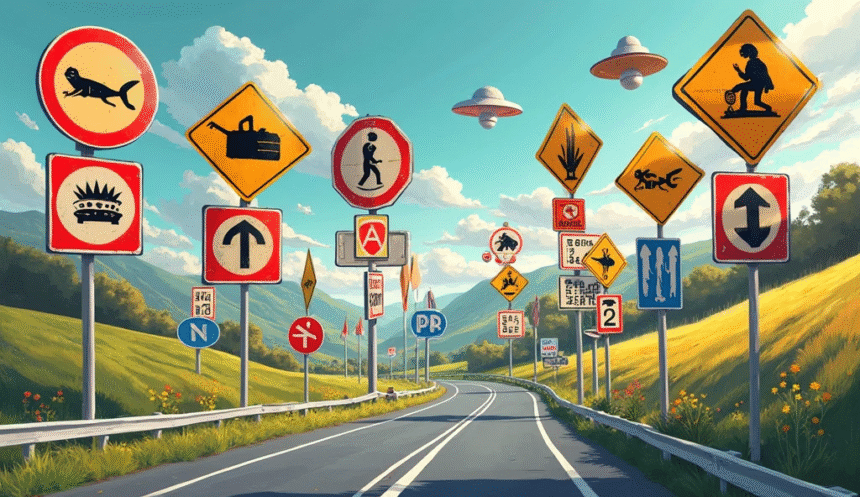Europe is home to centuries of legal tradition, progressive politics, and world-class governance. But tucked among the codes and constitutions are some surprisingly bizarre laws—many of which still exist today. From what you can’t name your baby in Denmark to how loud your lawnmower can be in Germany, here’s a tour of Europe’s weirdest legal oddities that continue to leave tourists (and locals) scratching their heads.
Germany: Don’t Mow on Sundays
In Germany, Sunday is legally protected as a day of rest, which means loud activities—including mowing your lawn—can result in a fine. The Lärmschutzverordnung (Noise Protection Ordinance) is taken seriously, and even vacuuming or drilling can get you in trouble in some apartment buildings.
France: No Flying Saucers in Wine Country
A 1954 law in Châteauneuf-du-Pape, a French wine-growing town, prohibits flying saucers or UFOs from landing in the vineyards. Though clearly tongue-in-cheek, the law is still on the books and celebrated as a local quirk.
Italy: Goldfish Bowls Are Banned in Rome
Rome passed a law that bans keeping goldfish in round bowls. The reasoning? It distorts the fish’s view and is considered cruel. Animal welfare laws in Italy go further than many would imagine—including a €500 fine for not walking your dog daily in Turin.
Denmark: Baby Name Approval
In Denmark, parents must choose baby names from a list of officially approved names. If they want something unique, they need to apply for permission. This ensures names are culturally appropriate and not harmful to the child.
The Origins Behind the Oddities
Many of these peculiar laws weren’t created just for laughs—they often stem from genuine social values or historical context. For instance, Germany’s Sunday silence laws are rooted in post-WWII rebuilding efforts that emphasized peace and rest. Denmark’s baby name regulations are designed to prevent bullying and promote cultural consistency. These “weird” rules often reveal a lot about a society’s priorities

Sweden: Silent Recyclers
In some parts of Sweden, recycling stations have noise restrictions—even how loud the clink of bottles is can matter. While not strictly “weird,” it’s part of a broader culture of considerate silence, especially in residential areas.
Netherlands: Pee Problems for Men
In some cities in the Netherlands, urinating standing up after 10 p.m. is banned in certain apartment complexes because of plumbing noises disturbing others. Residents are asked to “sit and pee” at night!
Finland: Pay Fines Based on Your Income
Speeding in Finland can get really expensive. That’s because fines are calculated based on your income. One millionaire once paid over €100,000 for a speeding ticket—legally and fairly.
UK: Weirdly Still on the Books
Though many old British laws are outdated and unenforced, some are still technically valid—like it being illegal to handle a salmon suspiciously under the Salmon Act 1986, or that it’s unlawful to be drunk in charge of a cow on a public highway.
Know Before You Go
Traveling through Europe? These quirky laws might catch you off guard. It’s always wise to check local regulations—even ones that seem silly—before visiting a new city. From noise ordinances to pet ownership rules, understanding a country’s lesser-known laws can help avoid fines and even show respect for local culture. Plus, they make for great travel stories!

Why These Laws Still Matter
While many of these laws may seem absurd, they often reflect deeply rooted cultural norms—like quiet Sundays in Germany, strong animal rights in Italy, or personal responsibility in Scandinavian countries. They remind us that law isn’t just about order—it’s also about values.








